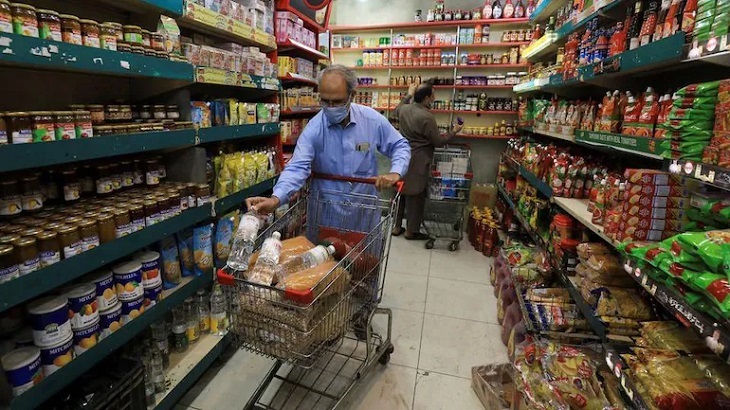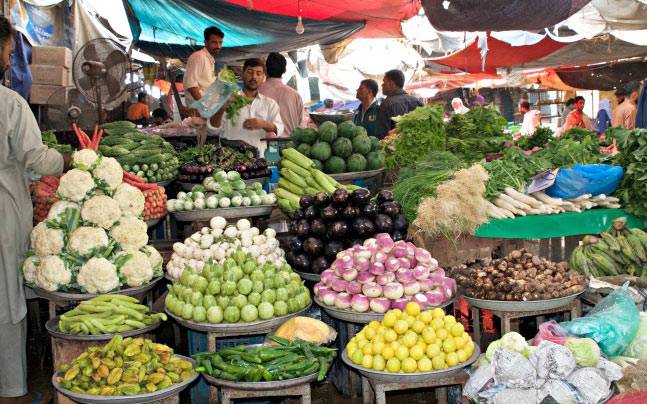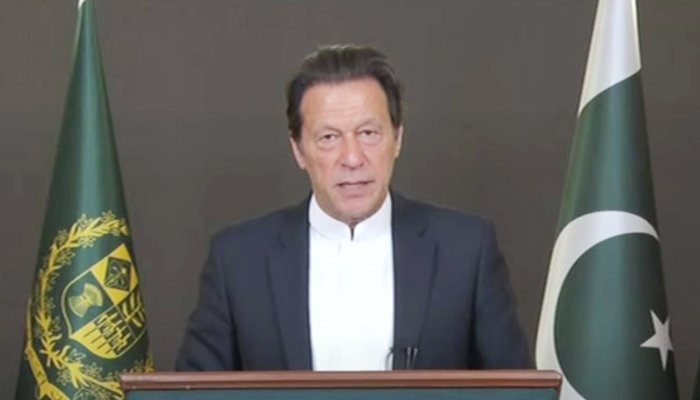ISLAMABAD: Prime Minister Imran Khan on Sunday said Pakistan had fared much better than other countries in the wake of unprecedented price hike brought about by Covid-19.
The opposition, on the other hand, rejects this notion and is gearing up to give a tough time to the government on the issue.
In a tweet, PM Khan said: “An unprecedented rise in commodity prices internationally has adversely affected most countries in the world as a result of the Covid lockdowns.”
However, he said, “Pakistan Masha Allah has fared relatively better in meeting the challenge.”
The prime minister also shared a video clip of the finance ministry spokesperson, Muzammil Aslam, who rubbished the perception that Pakistan’s economy was tottering, but at the same time said prices of petroleum, gas and edible oil were not in government’s control.

It may be mentioned here that heads of the component parties in the Pakistan Democratic Movement (PDM) on Friday had vowed to launch another Tehreek-i-Nijaat (movement of riddance) against the government for the “unprecedented” inflation and “lob-sided” accountability being carried out to cover corruption of the ruling alliance.
Opposition leader and Pakistan Muslim League-Nawaz (PML-N) President Shehbaz Sharif held talks with the heads of various opposition parties through telephone and video link and unanimously decided to give “a tough time” to the government inside and outside the Parliament House.
The mainstream opposition parties had joined hands to form PDM, but with the departure of Pakistan Peoples Party (PPP), the alliance lost steam.
It is believed that if the PPP, which also rejects PTI’s economic policies, rejoined PDM, the movement would strengthen.
Meanwhile, quoting data of the UN’s Food and Agriculture Organisation (FAO), the finance ministry’s spokesman, Muzammil Aslam, said from September to October this year, food prices had increased by 1.9 per cent, World Cereal Index by 3.2pc, edible oil prices by 9.6pc and dairy products by 2.6pc.
On the other hand, “despite worldwide inflation trend, Pakistan’s exports recorded an increase of 17pc in October and likely to touch $30 billion mark this year,” he said, adding that textile exports were expected to reach $22bn.
The spokesman said as a result of timely measures, non-oil imports reduced by 12.5pc last month, making a difference of $750 million.

Similarly, with the increase in revenue, tax collection had surged, seeing a 32pc increase in four months and bringing an additional Rs151bn to the government compared to last year, he said.
Mr Aslam went on to say that as per the latest data, the country’s cotton crop increased by 81pc in the last four months while the industry recorded a growth of over 12pc. Companies also registered a rise in profits by 21pc in August, he added.
“All this shows that the country’s economy is moving fast and employment opportunities will be created in the coming days,” he claimed.
About the relief given to the middle class in the prime minister’s recently announced Rs120bn package, he said the government had already announced that a concession of Rs5-7 would be extended on every unit that is consumed between November and February.
Moreover, he said sugar prices would fall in the near future owing to record sugarcane crop, adding that, “all these things will appear on the ground in the coming days”.
The spokesperson, however, said: “Prices of petroleum, gas and edible oil were not in government’s control”, but, due to record crops this year, Pakistan would emerge from a food deficit to a food surplus country.


